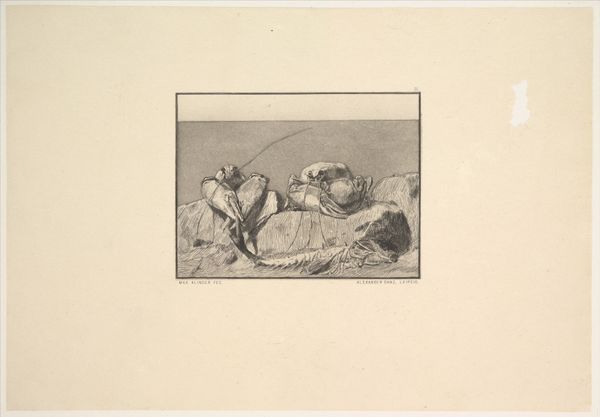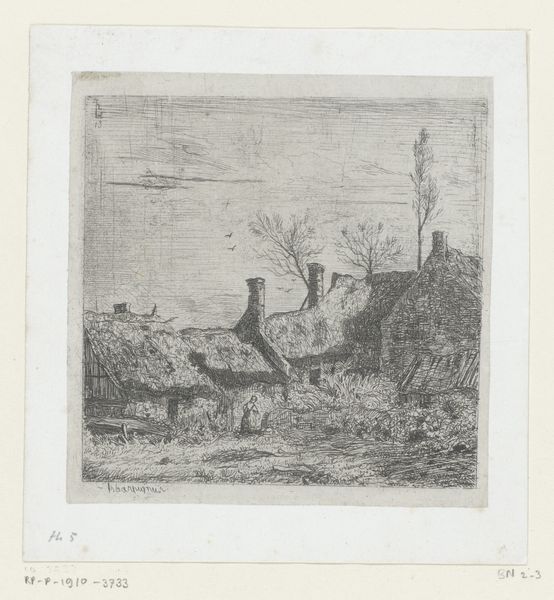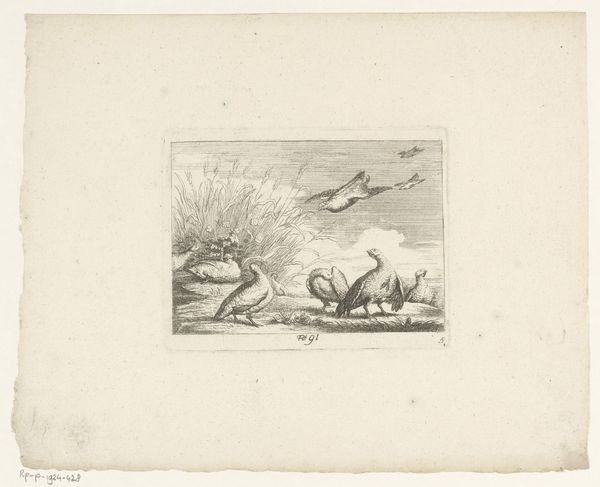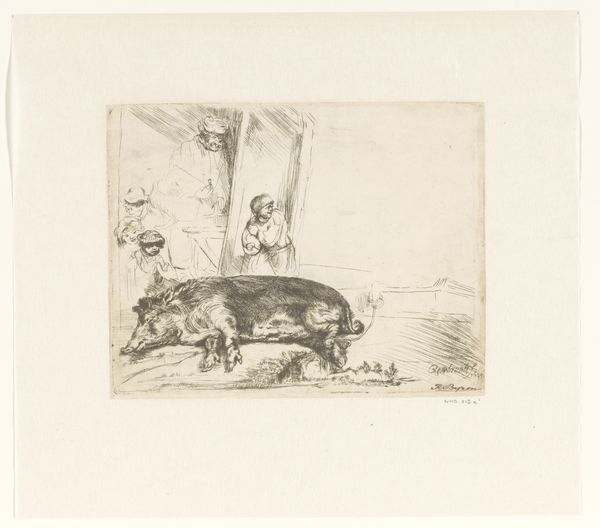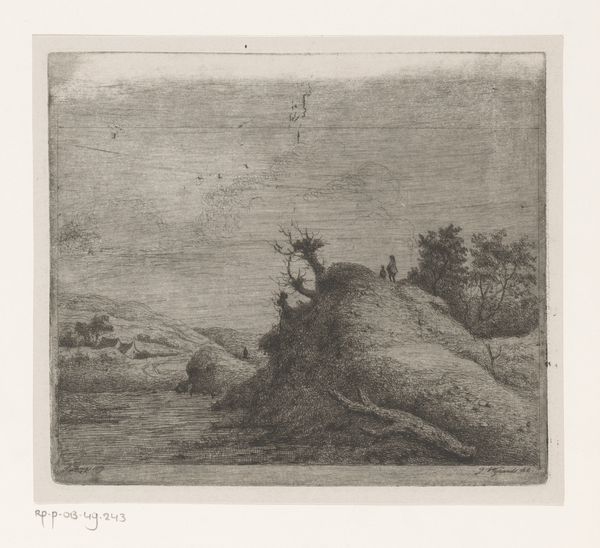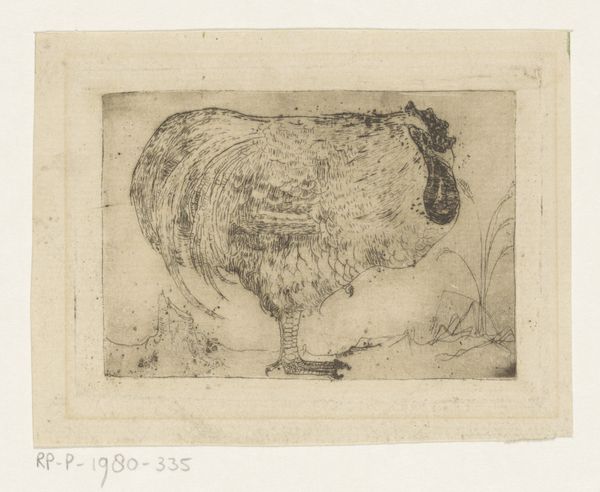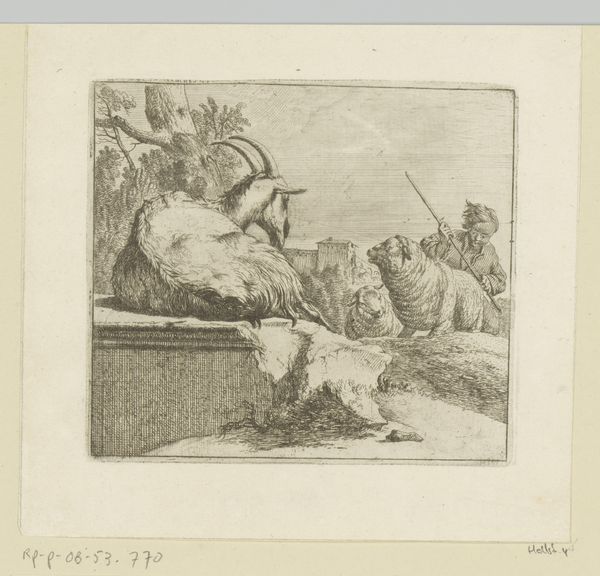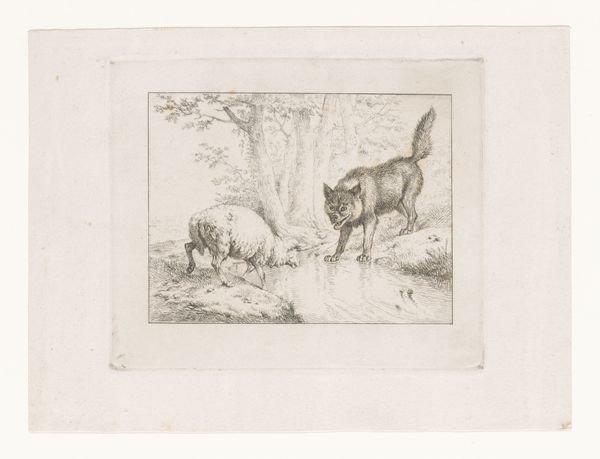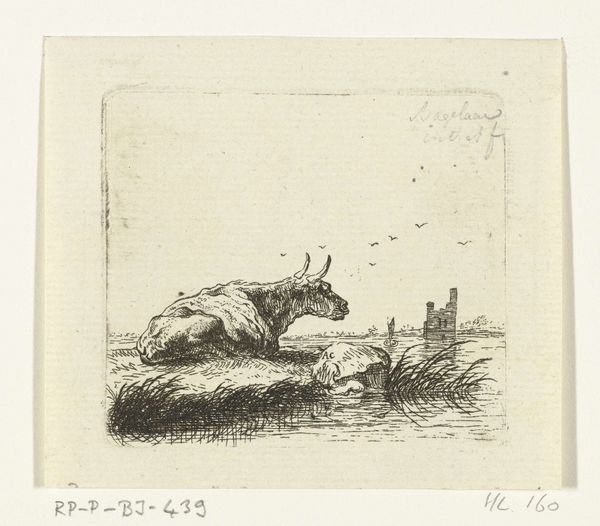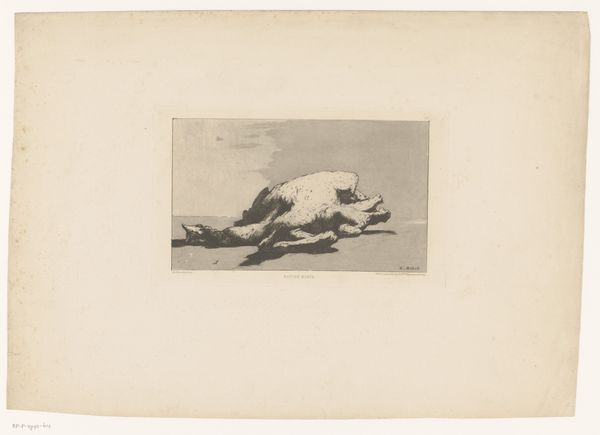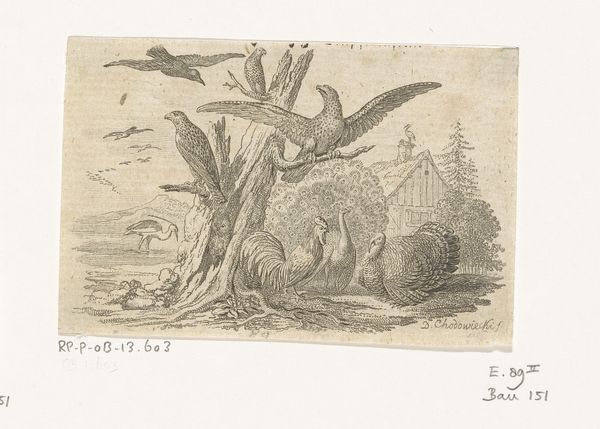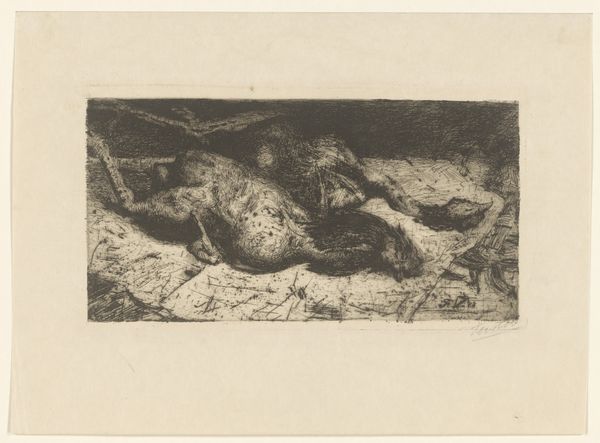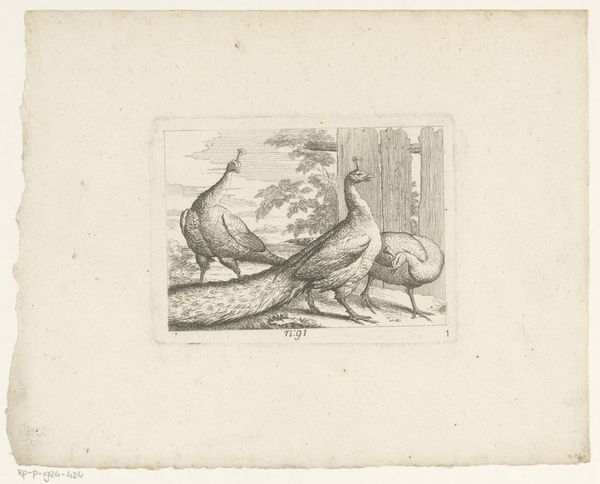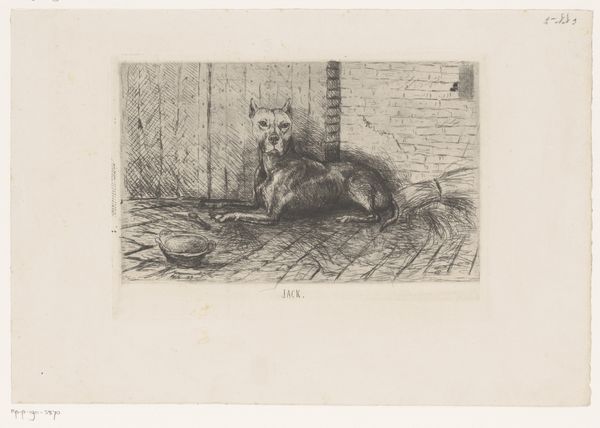
print, etching, engraving
#
baroque
#
animal
# print
#
etching
#
landscape
#
figuration
#
engraving
Dimensions: height 128 mm, width 139 mm
Copyright: Rijks Museum: Open Domain
Editor: This etching, “Liggende geit en staand schaap” – "Reclining Goat and Standing Sheep" – made in 1671 by Johann Heinrich Roos, has such a serene, pastoral quality. What strikes me, though, is how the goat’s gaze is directed away, almost confronting the viewer. How do you interpret this work? Curator: Well, considering the historical context, animal imagery was quite popular. But often, it wasn’t just about depicting animals. Consider the rise of landscape painting and its relationship to ideas of national identity and ownership of land. Does this intimate portrayal of livestock hint at deeper societal values tied to land and agriculture? Editor: So, these weren't just farm animals; they were symbols connected to broader ideas of land ownership? Curator: Exactly! And think about who the likely audience was for these prints. Wealthy landowners? Emerging merchant classes who might aspire to that lifestyle? Roos' work, like that of many of his contemporaries, became highly collectible within an emerging bourgeois class who sought to possess imagery alluding to nobility. The print allowed the consumer to enjoy a sort of aristocratic or idyllic leisure without the demands of manual labour, of course. Does knowing this change how we view that reclining goat? Editor: Definitely! It's easy to look at it simply as a depiction of rural life, but you’ve highlighted how it's also participating in social dynamics. So, the question becomes, how does this particular imagery negotiate societal values? I suppose by romanticizing labour, in the absence of labourers? Curator: Precisely! Art never exists in a vacuum. Reflecting on this etching reveals connections to power structures and societal ideals embedded in seemingly simple imagery. Editor: I never would have thought about it that way! I'll certainly pay more attention to the context surrounding the artwork moving forward.
Comments
No comments
Be the first to comment and join the conversation on the ultimate creative platform.
